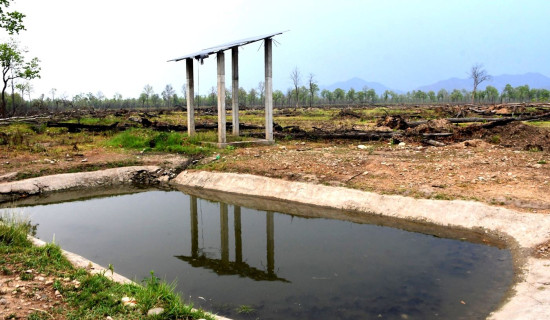- Thursday, 31 July 2025
Course Of Happiness
There's a growing global recognition that education must help pupils not only to build their careers but also to lead a fulfilling life and be of service to their community, country and the world as a whole. To meet these goals, educators and experts alike agree that teaching students how to guard their mental states against deleterious tendencies of the mind is essential, as is unlearning the deep-seated biases and mental conditioning that inevitably lead to quarrelsome relationships, and eventually, to sorrow.
In an effort to help its students tap the immense potential for happiness within themselves, Yale University, in the USA, a few years ago, launched an online course, "The Science of Wellbeing". With over 4.8 million already enrolled, the course has become hugely popular, with many students claiming that it brought revolutionary changes to their lives by teaching them the skill of happiness. Following its success, countless academic institutions in the West have followed Yale's example.
According to a news story carried by this daily the other day, one school in Nepal, too, has achieved this success by introducing such a course: Janata Secondary School of Madhyabindu Municipality, Nawalpur district. After the implementation of the curriculum, 'Our Happiness', positive changes have been noticed in most of the students studying from Grade 1 to Grade 8. Almost all children there have become more aware of their excessive use of mobile phones and consumption of junk food.
One Grade 2 student has reported that she used to watch TV or a mobile phone shortly after getting home without taking off her dress and washing her hands and face. She would even fight with her mother if she didn't like the food her mother prepared. But now, as soon as she gets home, she changes her dress, washes her hands and face and happily eats whatever snacks her mother has prepared. She even helps her mother with household chores. She has stopped getting angry and works with full concentration, with her mind becoming sharp.
The course has proved to be so impactful that children are advising their parents to give up their addiction to smartphones and highly popular apps like TikTok, urging them to watch content that expands the horizon of knowledge. Not only pupils, it has also brought about positive changes in teachers themselves. The teachers, who once beat their pupils when the latter made noise in the classrooms, have developed the habit of speaking to them with joy, kindness, and a smile. There is also improved cooperation among the teachers. This positive behavioural change has also brought great happiness to the parents.
Wellbeing courses equip students with life skills and create a more supportive learning environment. These courses can help prevent mental health issues, improve academic performance, and foster a positive school environment. By learning about happiness, students can better manage stress, develop self-awareness, and cultivate positive relationships. Not only does this work to boost academic performance, mental health, and overall quality of life, but also helps those enrolled develop the habit of helping, respecting, addressing someone respectfully, and getting along with people around.
The municipality believes that this curriculum is a significant step towards in helping students develop sensitivity and consolidate and expand family relationships. Given the phenomenal success of the course, all academic institutions nationwide should consider following Janata Secondary School's example.

















